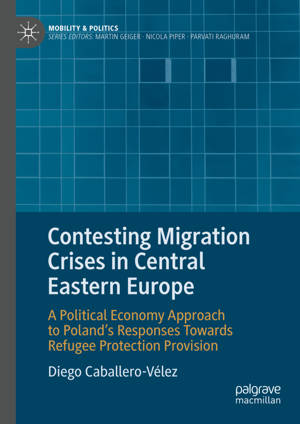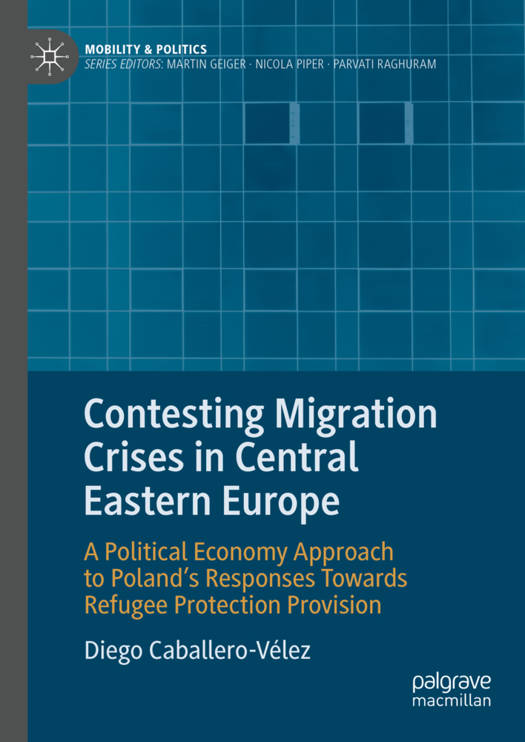
- Afhalen na 1 uur in een winkel met voorraad
- Gratis thuislevering in België
- Ruim aanbod met 7 miljoen producten
- Afhalen na 1 uur in een winkel met voorraad
- Gratis thuislevering in België
- Ruim aanbod met 7 miljoen producten
Contesting Migration Crises in Central Eastern Europe
A Political Economy Approach to Poland's Responses Towards Refugee Protection Provision
Diego Caballero-VélezOmschrijving
During the 2015 and 2016 refugee crisis the EU called on the Member States to engage in protection burden-sharing. This proposal found strong opposition from some of the Visegrad Group countries, including Poland, which expressed their reluctance to the relocation scheme securitizing the political narrative towards refugees. On the contrary, in 2022, during the Russian military aggression against Ukraine, Poland strengthened an "open door policy", showing a humanitarian approach towards Ukrainian refugees.
This book uses a public goods theoretical framework to examine the various public goods characteristics of refugee protection in such scenarios. It is argued that the publicness and character of refugee protection is socially shaped by norms and identities. States perceive refugee protection, including benefits and costs, in different ways. The author focuses his analysis on the security/humanitarian dichotomy in states' perceptions of refugees to investigate the accompanying vision of the inherent costs and benefits. The conceptual part of the book provides conclusive support of an alternative constructivist mode in public goods theory for understanding refugee protection burden-sharing.
Specificaties
Betrokkenen
- Auteur(s):
- Uitgeverij:
Inhoud
- Aantal bladzijden:
- 163
- Taal:
- Engels
- Reeks:
Eigenschappen
- Productcode (EAN):
- 9783031440366
- Verschijningsdatum:
- 31/01/2024
- Uitvoering:
- Hardcover
- Formaat:
- Genaaid
- Afmetingen:
- 148 mm x 210 mm
- Gewicht:
- 376 g

Alleen bij Standaard Boekhandel
Beoordelingen
We publiceren alleen reviews die voldoen aan de voorwaarden voor reviews. Bekijk onze voorwaarden voor reviews.












